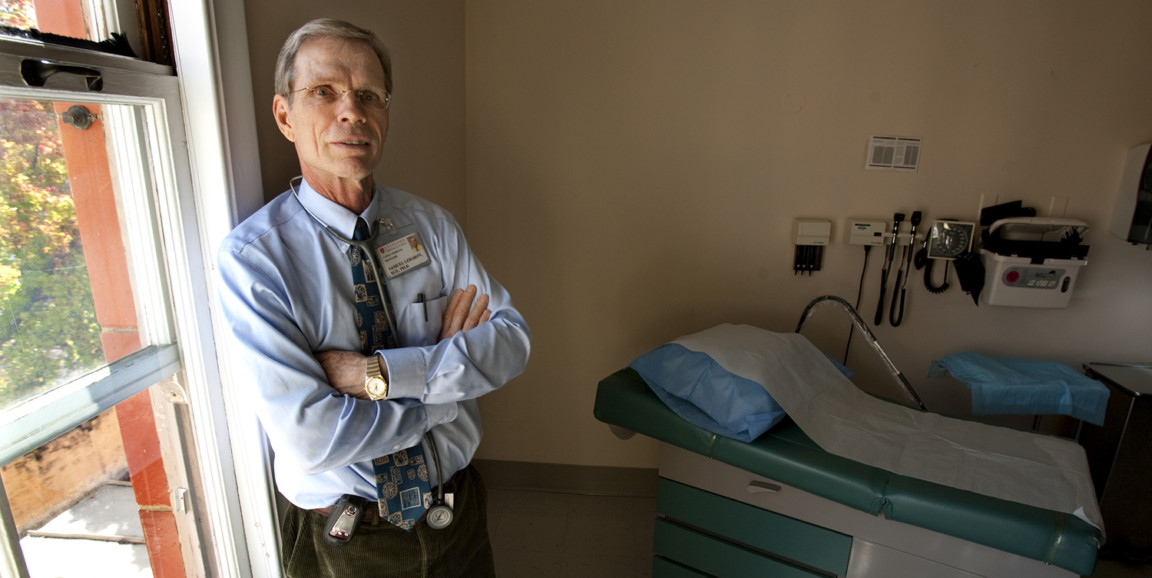Samuel LeBaron, MD, PhD, is a family medicine specialist and Stanford Medicine professor emeritus who now faces the situation he guided patients through during his career: navigating terminal lung cancer. In his memoir, Ordinary Deaths, published in July, LeBaron weaves personal stories with vignettes that illuminate the patients whose lives he's witnessed.
Throughout his career as a family medicine doctor, hospice care provider and technician in a medical examiner's office, LeBaron jotted down stories of his patients, intent to one day share them with his inquisitive children who asked what he did every day. He chose his words carefully, creating a repository of clinical experience, much of it from a time before hospice existed.
I asked LeBaron to share more about his career and the stories he's said were a salve in coming to terms with his own mortality.
You've talked about how you saw death as a child. What does that mean?
Up until about 5 years old, children have not yet adopted the notion of cause and effect. By the time we're in the third or fourth grade, we've learned we live in a world of rules. So we think the way we live our lives determines how our lives end. One might think that a happy person would feel a bigger loss when they're facing death. That seems logical. But I've personally experienced the opposite. I think of it as a phrase: "I could die happy now." If we have time to accept our death as the end of a happy life, we're much more ready to accept it.
The title describes death as "ordinary." How can death bring meaning to our everyday lives?
The book title was partly ironic because every death I witnessed was extraordinary. On the other hand, they are ordinary deaths in the sense that this happens to everyone in some form or another. Put another way, there is really nothing extraordinary about waves. They just wash up and down the shore, but we love them all the same. And they may help create an extraordinary experience. We may go to the ocean to shed our tears and feel a little bit of comfort from that gentle, constant roll in and out. Our deaths are similar in that way: ordinary and extraordinary at the same time.
What guidance can you share with doctors offering end-of-life care? What have you done for patients in their last hours that you think made the biggest difference to them?
What loosens the tongue faster than anything is a safe, sympathetic environment. There are two basic prompts you need to know: Tell me about yourself and tell me more. Ask questions. Invite the exploration of the question and give a response to let them know they've been heard: "I can imagine that was very difficult. I really appreciate you letting me into that story."
It helps the patient feel heard and valued.
The great tragedy is that for the most part, American physicians -- the sweetest, most jolly, most interesting people you could want to meet -- are on a treadmill, often seeing too many patients to have time for deeper connection.
What value does writing bring to your life, especially as you face your own illness?
Writing is incredibly meaningful in my life. When I was 14, I found it difficult to communicate the way I wanted. I went from a gregarious, playful kid to a reticent teenager.
I also became distant with my brother. But then something quite remarkable happened: We began to write little stories and sometimes letters to each other. They were all about adventure; some of them were entirely fiction, all of them outrageous, and they entertained us and made us laugh. There were times when we would stay up all night, doing nothing but writing stories. It was so much fun, and it drove my parents crazy.
And then, in my 40s, it occurred to me that all the knowledge gleaned from my patients could disappear if I didn't write any of it down. Since then, it's been a process of reintegration after feeling like a bomb went off in my house when I learned of my diagnosis.
My wish is that these stories and lessons be used as a guide -- to show people how to be present and supportive, how to let people know you hear them and help them get what they need.
Ordinary Death: Stories from Memory by Samuel LeBaron, MD, was published by University of Alberta Press, Copyright © July 2022.
Photo by Norbert von der Groeben/Stanford Hospital and Clinics






